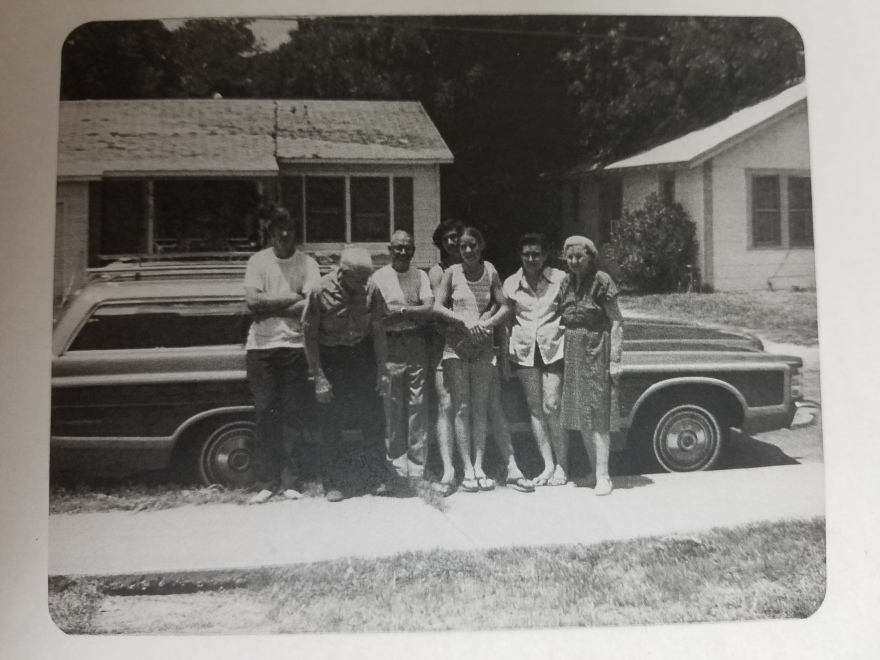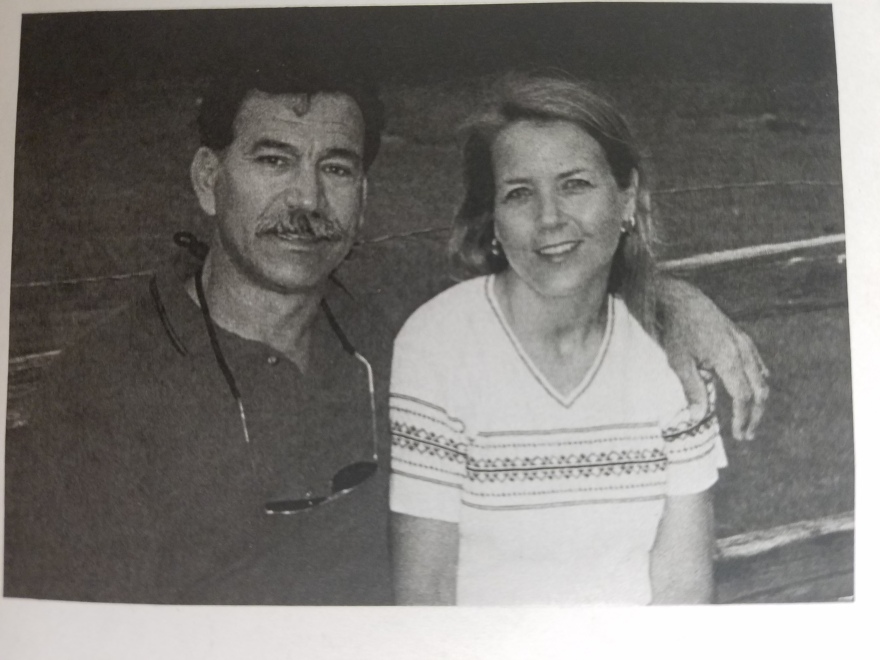Sheryl Canales born was born in 1956 South Texas. She has lived in Texas for most of her life. She grew up in the 1960s a time of high segregation in America especially in the South. She has been a proud parent of two children in the Flour Bluff school district for many years. During this time started in volunteer programs in the school system and began working for the school system. She had to work though the worry and devastation of 9/11. Sherly Canales is now the current secretary for the University Preparatory High School Program helping students get a head start on their lives as university students. She has always love to help people with the kind sweet personality she has. Canales has lived and worked here in South Texas all of her life. Although she would love to go and travel around the country.

Canales spent her early life spending time with her family including her grandparents and three brothers here in South Texas. Her grandparents on her mother’s side were immigrants from Germany. Her grandfather fought in the Korean war on the United States side which she said surprised her. He fired big tanks which caused him to loose most of his hearing. Also, he was an engineer working on engines, trucks, cares, and planes for the military. After retirement he continued to work on cars. Mrs. Canales grew up in a time of segregation and went to an all-white school until she went into her high school years when people began to be integrated more in the school systems. She never realized that she was in a segregated school because it seemed normal to her it didn’t feel like she was missing something in her life.
The South had a determination to prevent desegregation of public schools. Brown v Board of education and Sweatt v. Painter pushed for integration in Texas schools. State leaders and white voters refused to accept these court decisions as the law of the land. President Eisenhower’s forced integration was rejected by the south (Waite). The South remained segregated until the 1960s civil rights movements. Women and girls at the time were treated differently from men. They were not allowed to wear pants or participate in certain jobs that men could. After she graduated from high school she married her husband George Canales and settled down for a while and had children. She never went to college because if you didn’t plan on going into a profession like a teacher college wasn’t pushed. “Many women still attain high social standing and affluent life styles.” (Glenn) It states within the article that college attendance may have been higher for women than men if it made the woman more desirable for marriage (Glenn et al.). High education was not as common as in men. Most women didn’t work more than part time outside the home because they would make less money than the man. This was common coming out for the 1950s going into the 1960s because it was expected for women to be good house wives. They didn’t have any other expectations for women as seen in the magazines made for them to read. Nothing but how to dress, clean, and making your home life better.
Mrs. Canales explained her mother did go to college and got a PhD. She then taught at the college level for a while until she decided to become a first grade teacher where she found more joy in teaching. Her mom was a driving force to push for her girls to go to college because in order to be self-sustained you need to have a good education in order to have a good job. She didn’t want her daughters to be stuck in the position that she was she wanted more for them. Since she didn’t go to college she didn’t have that much interest in politics like her husband George.

Her husband George was the political on in their relationship until the election of President Reagan. She never had a true passion for politics until president Reagan came into office. “He was a great leader because he was one of those people who comes out and says you are not going to mess with us, he meant it he stood ground and stood there with awful force.”(Sheryl Canales). On the day of 9/11 she was working in the school. 9/11 was a foreign attack on the Twin Towers in the World Trade Center in New York in 2001. Two planes flew into the building and a third of a plane ended up in the Pentagon. Over 3,000 people died in the attack. She remembers watching it on the T.V. with all the other teachers in utter shock. It was unclear how someone could come to our country and make such a devastating attack. She was proud of how America has taken care of most of the people who caused so many families pain from losing a loved ones and friends during the attack. She is proud of our country for taking care of the people who caused the problem.
Mrs. Canales’s personal idea of freedom is to be able to go where you want and to do be able to do what you want. Her idea of freedom is very freeing for living in a place like America. For American freedom she believes that as Americans we have freedoms but we are not yet free. Canales explained that people and children are lucky to have the freedoms they do today. The freedom and opportunities that we have here in America. During the 1960s it was a time of happiness, hope, repression, violence, and death(Hewitt). Americans were fighting for their freedom creating movement groups such as the Black Panthers. It wasn’t just about fighting for their freedom but their existence. It has been a long journey for Americans be we have gotten part of the way here. With the acceptance of minority groups in schools, jobs, and society, but we still have a ways to go in getting to equality. Everybody has a different form of freedom and each freedom comes with where we come from and how we were raised.
Work Cited
Glenn, Norval D. and Patricia Ann Taylor. “Education and Family Income: A Comparison of White Married Men and Women in the U.S.” Social Forces, vol. 63, no. 1, Sept. 1984, pp. 169-183.
Hewitt, Steve. “The Other Side of the Sixties: Young Americans for Freedom and the Rise of Conservative Politics.” Labour / Le Travail, vol. 44, Fall1999, pp. 223-228.
Montgomery, Rebecca S. “Throwing off the Cloak of Privilege: White Southern Women Activists in the Civil Rights Era.” Journal of American History, vol. 93, no. 3, Dec. 2006, pp. 948-949.
Sheryl Canales Interview
WAITE, CHARLES. “Price Daniel, Texas Democrats, and School Segregation, 1956-1957.” East Texas Historical Journal, vol. 48, no. 2, Fall2010, pp. 110-122.